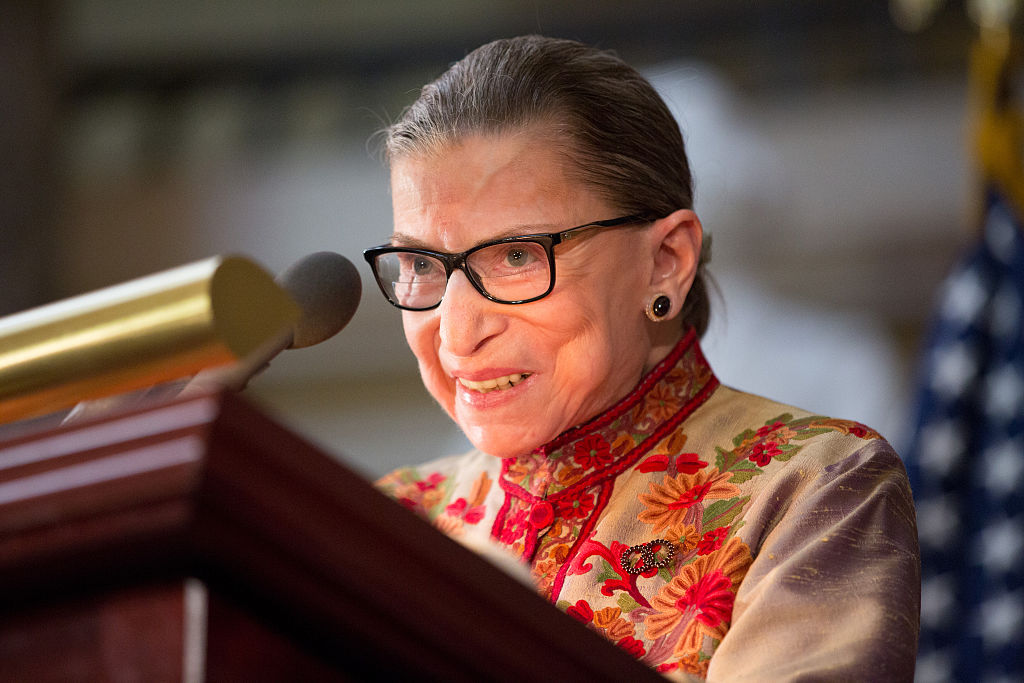22222222Honoring Kimberlé Crenshaw with the Ruth Bader Ginsburg Award
Supreme Court Justice Ruth Bader Ginsburg, the Notorious RBG as she was sometimes fondly known, led a storied career fighting for equal rights in the court system, even before she was appointed to the nation’s highest court.

Her graduation from Columbia Law School at the top of her class while serving as a member of the Law Review (after beginning her legal studies at Harvard) led her to clerk for a U.S. District judge. And yet despite her stellar qualifications, Ginsburg was offered a lower salary at the law firms to which she applied than her male counterparts. She eventually ended up teaching at Rutgers Law School and Columbia Law School where she was the first female professor to earn tenure.
Her work led her to direct the Women’s Rights Project of the American Civil Liberties Union in the 1970s. This is where she fought against gender discrimination and successfully argued six landmark cases before the U.S. Supreme Court.
Ginsburg looked not only at women facing discrimination, which she personally could attest to in her own life experiences, but also at men who experienced discrimination. When President Bill Clinton nominated Ginsburg to the Supreme Court in 1996, she continued her work fighting tirelessly for gender equality under the law, often picking apart the arguments before her in a precise way, so as to make a statement to legislatures passing unjust laws.
The legacy she left behind after her death on September 18, 2020 was one of fervor and precision, advocacy and justice. Gender equality was the cause of her lifetime.
When I’m sometimes asked when will there be enough [women judges on the US Supreme Court bench] and I say, ‘When there are nine,’ people are shocked. But there’d been nine men, and nobody’s ever raised a question about that.
– Justice Ruth Bader Ginsburg

It is this determination for a more equitable future for women and girls, and all Americans really, that leads the ERA Coalition to give the award named after the famed Justice to American civil rights attorney Kimberlé Crenshaw.
Crenshaw coined the term ‘intersectionality’ more than 30 years ago, yet its importance to advocacy work, civil rights, and feminism still lives on today. In her work as a scholar and writer on civil rights, race theory, and feminism she has been a pioneer. Crenshaw has written for Harvard Law Review, the National Black Law Journal, the Stanford Law Review, and the Southern California Law Review, and assisted on the defense team of Anita Hill during her grueling testimony at the confirmation hearings for now Justice Clarence Thomas.
She co-founded the Center for Intersectionality and Social Policy Studies at Columbia University, as well as the African American Policy Forum. With help from the latter, Crenshaw launched the #SayHerName campaign to shine light on police brutality against Black girls and women. She currently hosts the podcast series Under the Black Light.
It is her work as a feminist and anti-racist scholar and lawyer that most embodies the legacy left by Justice Ruth Bader Ginsburg. We’re grateful for her voice in this fight, buoying women and especially women of color in their intersectional identities as they strive for equal rights for all.
You’ll hear from honoree Kimberlé Crenshaw on Saturday as she accepts the Ruth Bader Ginsburg award from the ERA Coalition/Fund for Women’s Equality at our first-ever Living Equality Gala & Awards. Learn more and buy your tickets here to celebrate Crenshaw and our many other deserving winners.
